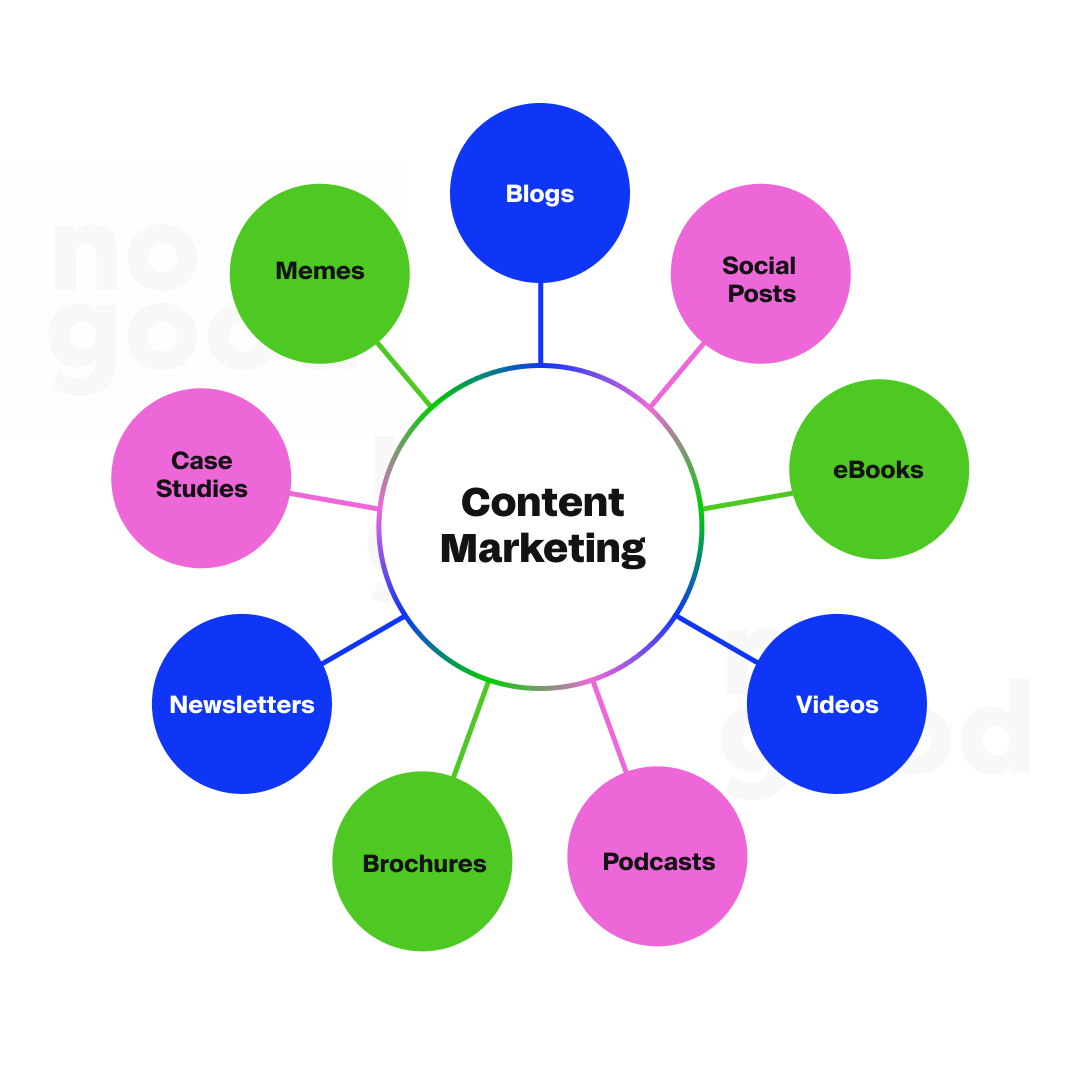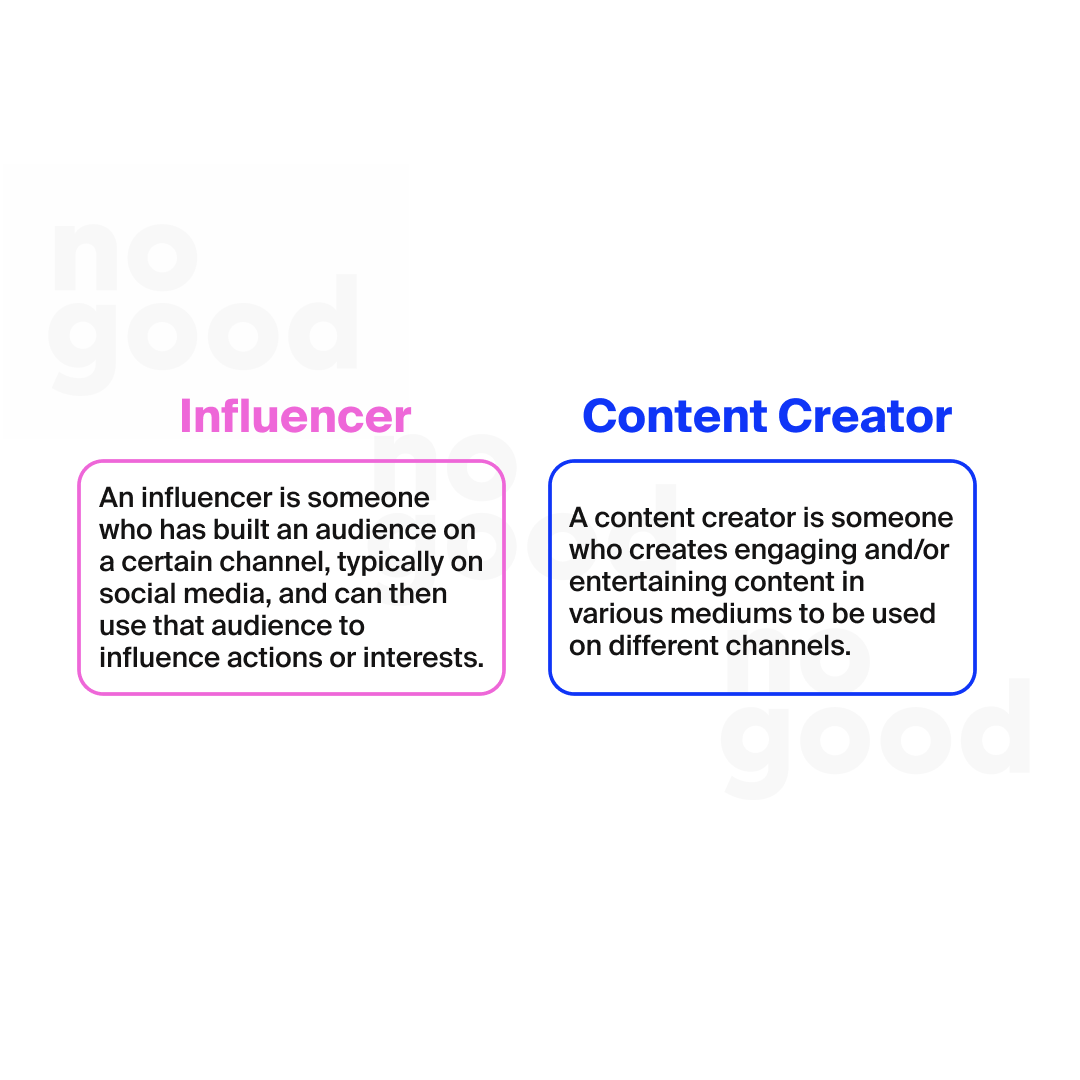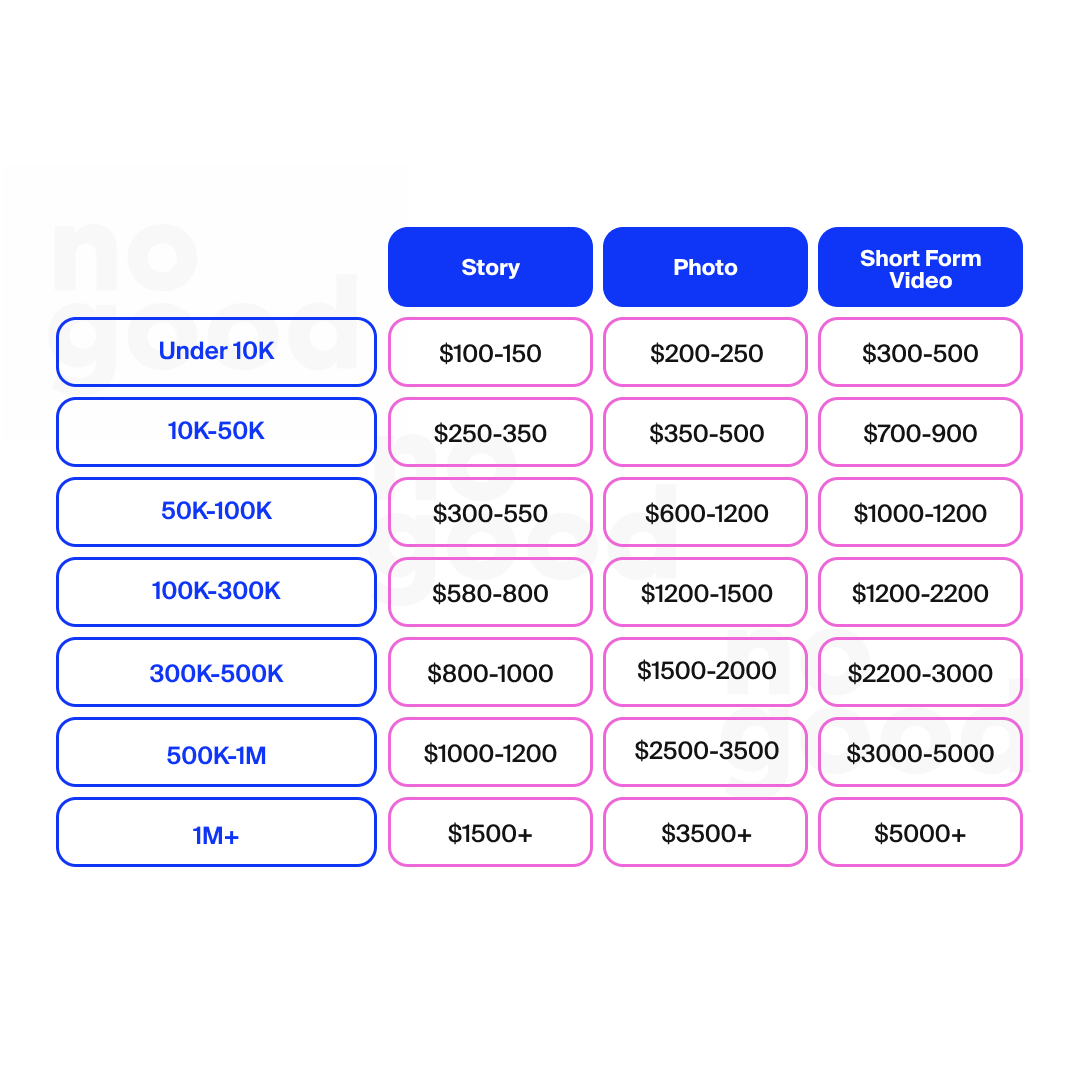If your website is Rome, content represents the many roads to get there. Content marketing is the most cost effective way to obtain brand awareness, build your brand community, and create a feedback loop that is constantly expanding your audience and providing helpful insights on your brand and product. Influencer marketing is one piece of this machine, but it’s important to know the difference between the two strategies and how to use them.
First of all… What is “content”
First, what is digital content?
Content encompasses any materials created for the means of sharing, educating, or engaging. These could be blogs, social posts, ebooks, videos, podcasts, brochures, quizzes, newsletters, emails, case studies, memes… the list goes on.

Is content marketing the same as influencer marketing?
Short answer is no… let’s explore the two.
What is content marketing?
Content marketing is the creation of “content”, which includes blog posts, ebooks, podcasts, social posts, videos, or any medium of sharing information or value for the purpose of furthering brand awareness, customer outreach, and consumer engagement. The ideal life cycle for this marketing technique is a brand shares the content through its respective channels, a potential customer sees that content and finds value in it so they choose to engage with it, which could mean following the brand, liking the content, simply consuming it, ect. This starts a relationship with that customer and deepens their interest in the brand. They then see more content that the brand is putting out, and become more interested, and look into the product or how to engage further. They then purchase, become a customer, hopefully share content of their own to attract new customers thereby creating a growth loop, and so on and so forth.
What is influencer marketing?
Influencer marketing though different from content marketing works hand in hand with your content strategy. We will go over that later in the article, but influencer marketing is the use of influencers to promote a product or service. This is typically done by the influencer creating content that they share on their respective social channels, but it can mean they create content for the brand’s social media as well (this is much more in line with content marketing however, just using their face for recognizability). Influencer marketing capitalizes on these creators already built audiences that already have trust in that creator. The audience is more likely to take action seeing their favorite influencer endorse a brand than the brand speaking about itself.
What is the difference between an influencer and content creator?

It is important to understand that all influencers are content creators, but not all content creators are influencers.
An influencer is someone who has built an audience on a certain channel, typically on social media, and can then use that audience to influence actions or interests.
A content creator is someone who creates engaging and/or entertaining content in various mediums to be used on different channels.
An influencer uses content to build their influence and therefore typically has the skills to create content for various purposes on the channels they are familiar with. However, a content creator doesn’t necessarily have an audience. In the past five or so years we have seen a rise in UGC creators, who have learned that they can make money without having an audience to influence. Brands need content to share on their channels and it is becoming more and more clear that this is a job you can’t hand to your most recent intern for you to get the results you want. There is strategy and a skillset behind it all.
What is the relationship between influencer marketing and content marketing? Differences between the two..
Purpose
The purpose of content marketing is geared to top of funnel brand awareness. The more content you are putting out that is strategically geared towards your audience’s interests, the more engaged they will be with your brand, the more trust they will have in the brand, and the more likely they are to think of your brand when they are ready to purchase and/or act on your other bottom of funnel marketing strategies. Influencer marketing can be geared to any area of the funnel with the right strategy. The point is to use the influencer’s audience to obtain your goal whether that be accounts reached (top of funnel brand awareness), traffic sent (middle of funnel action), or purchases made (bottom of funnel action), just for a few examples.
Effort
Which is easier, making the content in house or utilizing influencers to make it for you? That is really going to depend on your team size and your marketing budget. Content marketing involves ideating, creating, strategizing, and reporting learnings from just a surface level. However, don’t underestimate the time it takes to gather influencers, negotiate rates, follow up on contracts, chase the content, ensure brand guidelines, ect. when running an influencer marketing campaign. Each should work in tandem with each other to create a holistic content strategy.
Cost
Typically, content marketing costs up to 62% less than traditional marketing. Influencer marketing costs vary depending on the audience size of the influencer. Below is a chart with estimates on how much influencer content may cost for a TikTok video, but even this should be taken with a HUGE grain of salt. Influencers’ pricing varies dramatically from person to person, even if they have a similar following. You may find two influencers who have 1 million followers and one of them costs half as much. Due to limited transparency in this area and no hard industry benchmarks, having a budget range per influencer should be expected.

Benefits of Influencer Marketing
Brand Awareness
The primary benefit of influencer marketing is leveraging an audience that you don’t have to build. This is the age old word-of-mouth marketing but on a broad, digital scale. Influencers allow you to get your brand in front of a lot of eyes, and all of a sudden a whole new group of people knows that you are on the scene.
Strengthens Consumer Trust
Influencers have sway because they have spent a lot of time and energy building reliable trust in their audience (which can be measured in engagement rate and conversion rate). When you associate yourself with certain influencers, you are associating with that trust. Because their favorite influencer talked about your brand, they will trust that your brand can be relied on.
Increases Brand Reach
What is cheaper and has more impact? A billboard where you know thousands of people drive by every day, or a TikTok video with an influencer that has a minimum of 500,000 video views per video? Now think if you partner with multiple influencers with varying but slightly overlapping audiences? All of a sudden your consumer pool just got a whole lot bigger, and your name is all over their feed.
Boosts ROI
On average, for every $1 they invest in influencer marketing businesses generate $6.50 of revenue. Think of them as mass sales agents who have not only the ability to persuade, but authentic relationships built with thousands of potential customers.
Helps with SEO
Influencer marketing is an efficient way to drive website traffic and create quality backlinks that then lead to qualified leads and increased purchases. Influencers can share your website link through their own link in bio, their stories, or even their email lists.
Benefits of Content Marketing
Increased brand credibility
Content is not only King, it’s currency. Through content you can build a meaningful relationship with your consumers, and express your brand’s values, thoughts, educational materials, and messaging. When a consumer is learning about your brand, they are headed straight for your social channels, your blog, and your digital presence to make the first judgment.
Improved customer relationship
Your social media in particular is like a giant focus group. Here you can not only share your product and talk about what’s important to you, but you have a tool to listen to what is important to your customer. Bring them in on your next launch by doing polls on Instagram stories, or create videos where they learn their [Brand Name Here] horoscope and comment their results. You can comment back to them and open a dialogue that could give you insights to drive your next efforts. This allows your consumer base to see you as not only a resource, but a friend.
Positioning your brand as an expert
Content marketing gives you the vessel to share your brand expertise and educational insights. If you are the one teaching about your industry, who will your audience trust to create a product related to that problem?
Generate website traffic
Every piece of content you create is another opportunity to drive people to your website. You can link directly in your content and in the bio’s of your social channels, creating tens, hundreds, thousands of pathways back to your website.
Can be used across all platforms
Content is not like a disposable paper towel. Each idea, each piece of content should be rinsed and repeated on multiple platforms. This not only reduces workload and idea exhaustion, but it creates multiple touch points for your consumers to hear your message.
How to use them together
Content marketing and influencer marketing are 2 sides of the same coin and the two strategies can work hand in hand to achieve your marketing goals.
First of all, understand what to use each for. Influencer marketing should be used to reach large and new audiences. Content marketing should be used to achieve audience trust and build brand credibility. Therefore, you can implement your content marketing strategy through your various channels while running an influencer campaign to reach new audiences. Additionally, brands can partner with these creators to obtain a bank of content to be used on their various socials and in digital advertising.
Both of these strategies serve as a means to ultimately get potential customers to your website. Your website is the center and each social channel and influencer partnership is a road to get there. Content in any regard is the ultimate currency for potential customers’ attention, and it can be used in multiple ways and across multiple channels.
If you are looking for help building out your content marketing and/or your influencer marketing strategy, here is a good place to start.





